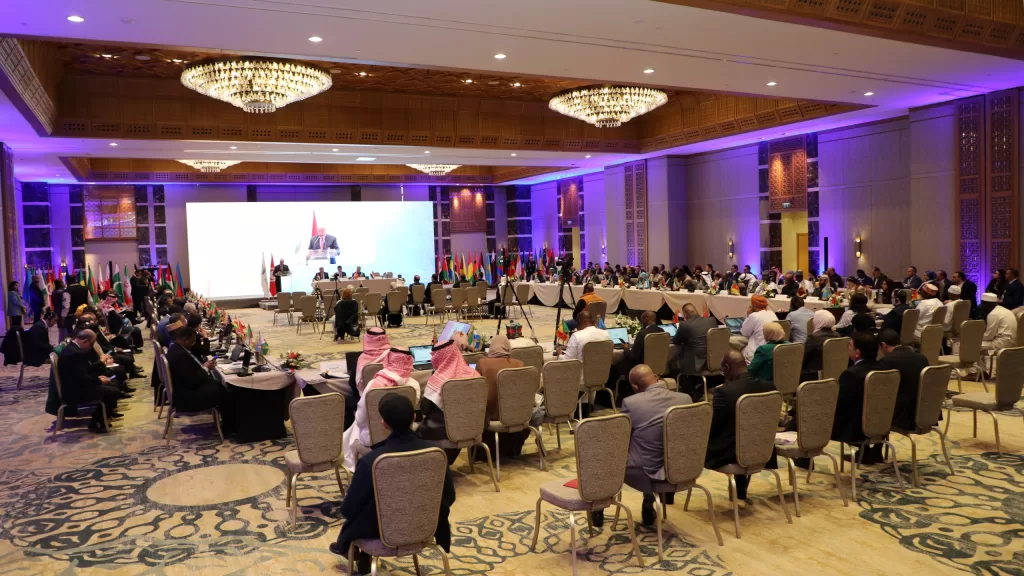
Under the Patronage of H.E. President Kaïs Saïed, the 45th ICESCO Executive Council Session Kicks Off in Tunisia
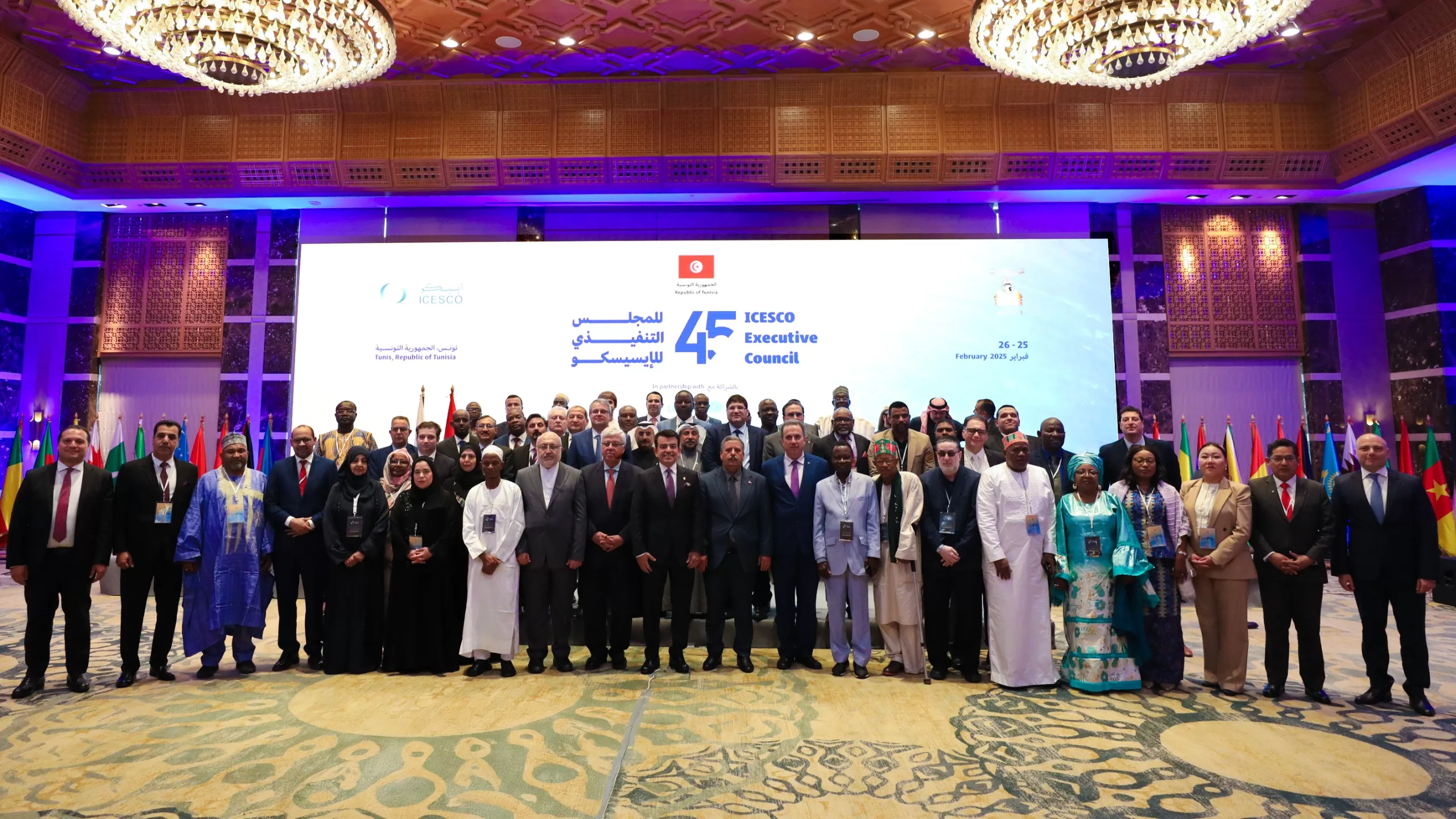
26 February 2025
On Wednesday, February 26, 2025, the Republic of Tunisia, represented by its Ministry of Education, hosted the 45th session of the Executive Council of the Islamic World Educational, Scientific, and Cultural Organization (ICESCO). Held under the patronage of His Excellency President Kaïs Saïed, the Executive Council brought together representatives of ICESCO Member States, ministers, ambassadors, officials, and delegates from regional and international organizations.
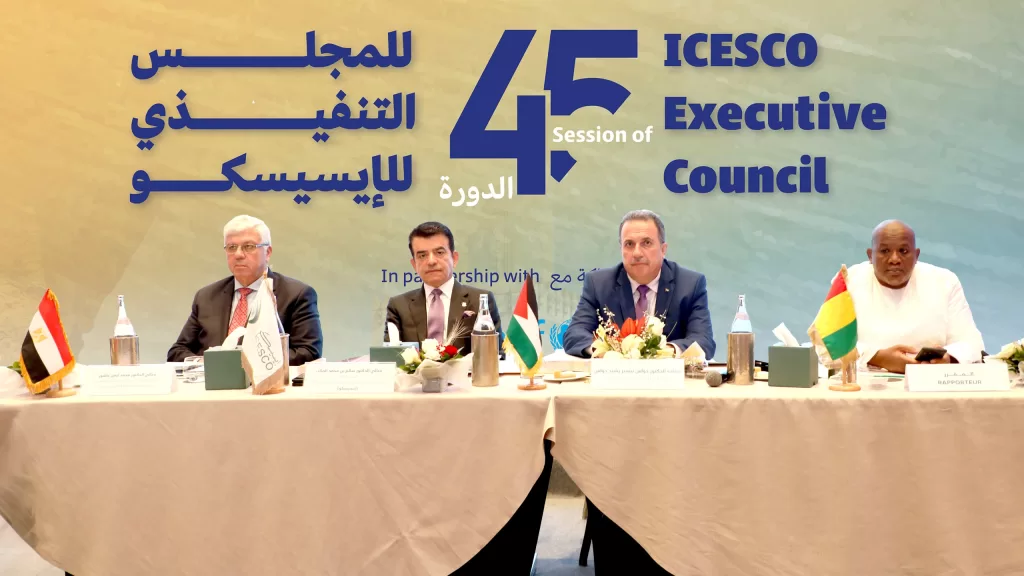
Chaired by Dr. Salim Al Habsi, Head of ICESCO’s General Secretariat of National Commissions and Conferences, the 45th session opened with remarks from Tunisia’s Minister of Education, Noureddine Nouri, in which he reiterated his appreciation to ICESCO for holding its Executive Council in Tunisia, reflecting the Organization’s vital role in strengthening ties among its Member States. He also affirmed Tunisia’s full commitment to supporting ICESCO’s efforts in planning and implementing various educational, scientific, and cultural initiatives and proposals.
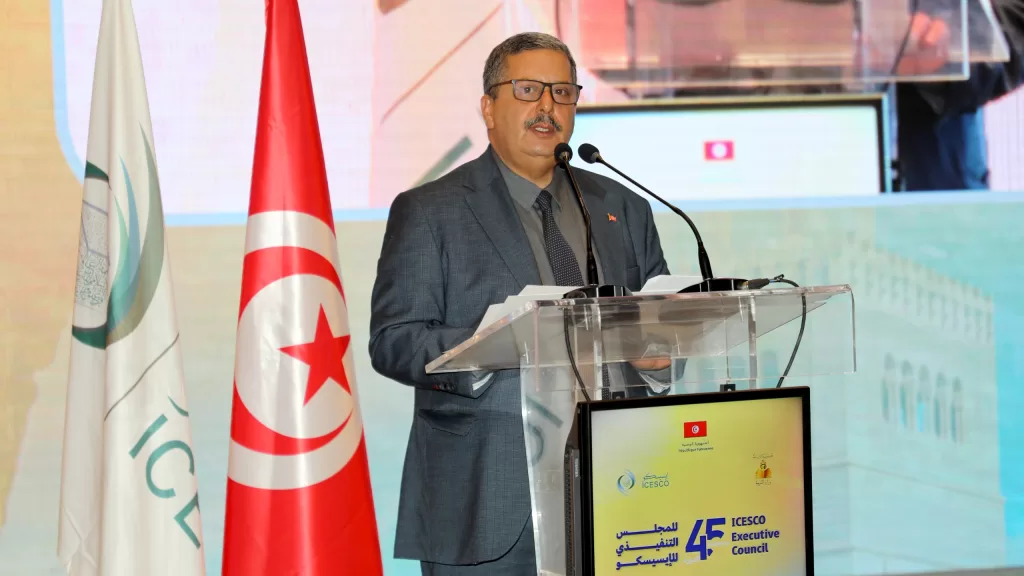
Following that, Dr. Mohamed Ayman Ashour, Egypt’s Minister of Higher Education and Scientific Research and President of ICESCO’s 14th General Conference, delivered an address emphasizing the need for unity among the leaders and peoples of the Islamic world in light of the significant challenges facing the region. He stated, “Our unity is not only one of faith and culture but also of history and destiny.” Dr. Ashour stressed ICESCO’s full recognition of the importance of coordinating efforts in its fields of action to cultivate generations of young innovators and scientists who possess a deep understanding of the present and the key to success in shaping the future.
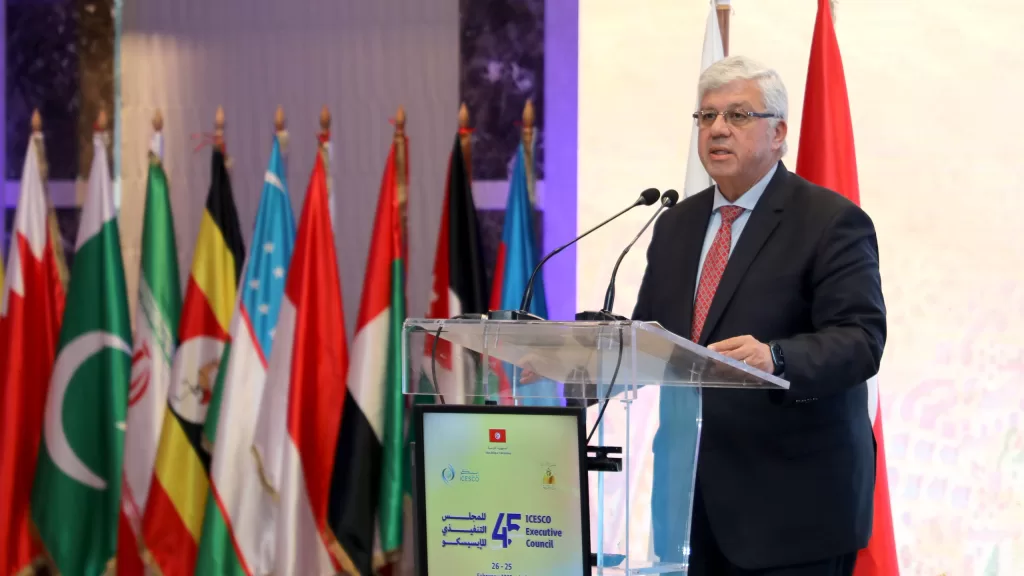
For his part, Dr. Dawas Tayseer Rashid Dawas, Chairman of the ICESCO Executive Council and Secretary-General of the Palestinian National Commission for Education, Culture, and Science, emphasized that the Executive Council serves as a platform where ideas translate into action and planning leads to implementation, all in pursuit of comprehensive development. He described it as a cornerstone for shaping ICESCO’s policies and setting its priorities, highlighting the need for teamwork, constructive collaboration, and innovative proposals that enhance the Organization’s efficiency and advance its noble mission.
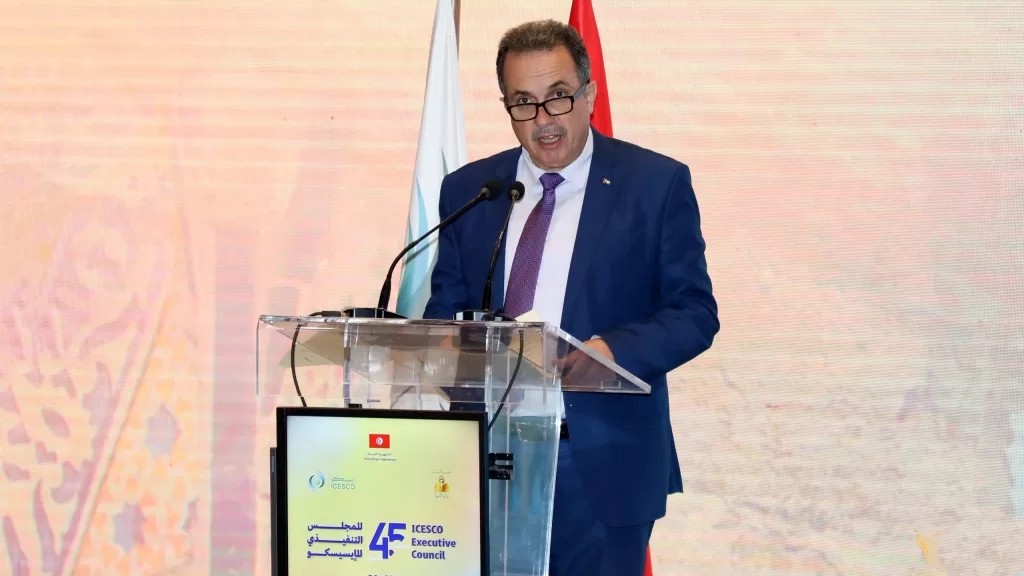
Next, Dr. Salim M. AlMalik, ICESCO Director-General, gave an address expressing gratitude to the Republic of Tunisia—its leadership, people, and government—for the honorable hosting of the Executive Council proceedings. Dr. AlMalik outlined three key objectives of the session, stating: “We convene, first, to reaffirm our commitment to partnership, upholding its values through a united vision and coordinated actions. Second, to engage in a constructive review of our achievements, which requires keen insights and thoughtful critique. Third, to adopt a confident, forward-looking approach, exploring future opportunities and defining their scope.” Dr. AlMalik further emphasized that ICESCO has earnestly represented the visions of its Member States, evolving into a globally recognized organization with impactful contributions. He highlighted the Organization’s efforts in establishing institutional mechanisms for future foresight, preparing young generations, and developing innovative civilizational concepts that offer effective solutions.
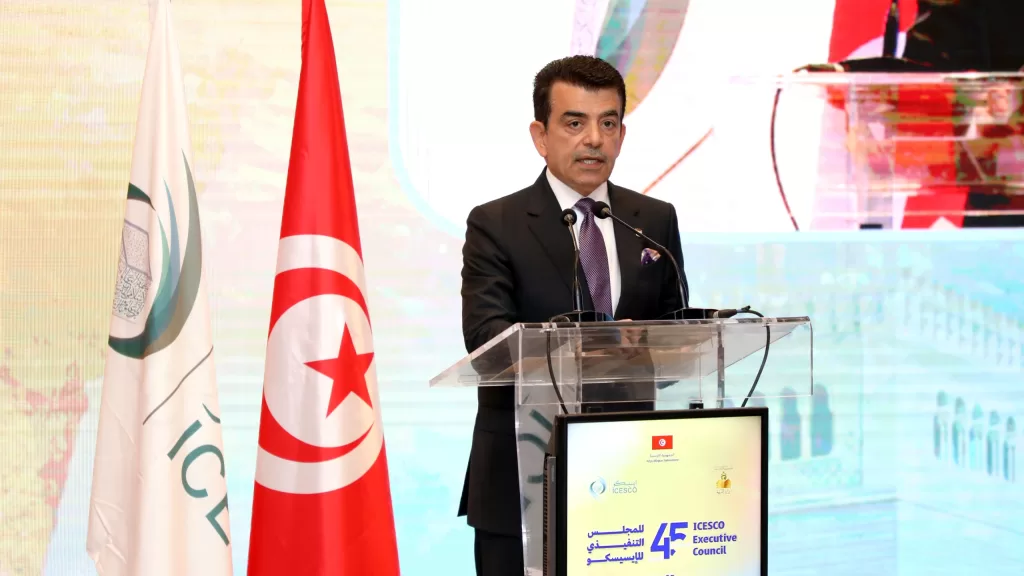
The opening session also featured remarks from distinguished guests. Dr. Saud Hilal Al-Harbi, former Director-General of ALECSO and former Minister of the Ministries of Education and Higher Education in Kuwait, highlighted the determination and leadership demonstrated by Dr. AlMalik and ICESCO’s staff. He praised the Organization’s commitment to change, its infusion of new talent, and its many achievements.
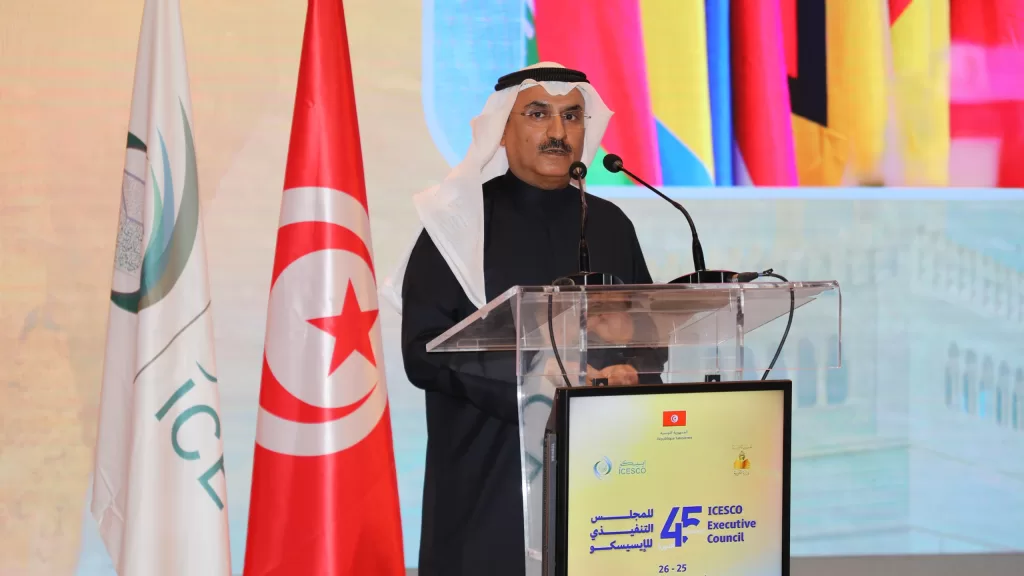
In a recorded remark, Dr. Moustafa Osman Ismaïl, former Minister of Foreign Affairs of Sudan, commended the notable progress ICESCO has made. He highlighted the Organization’s openness, its recruitment of youth and women, and its work environment rooted in creativity and innovation—factors that have positioned it alongside leading international organizations.
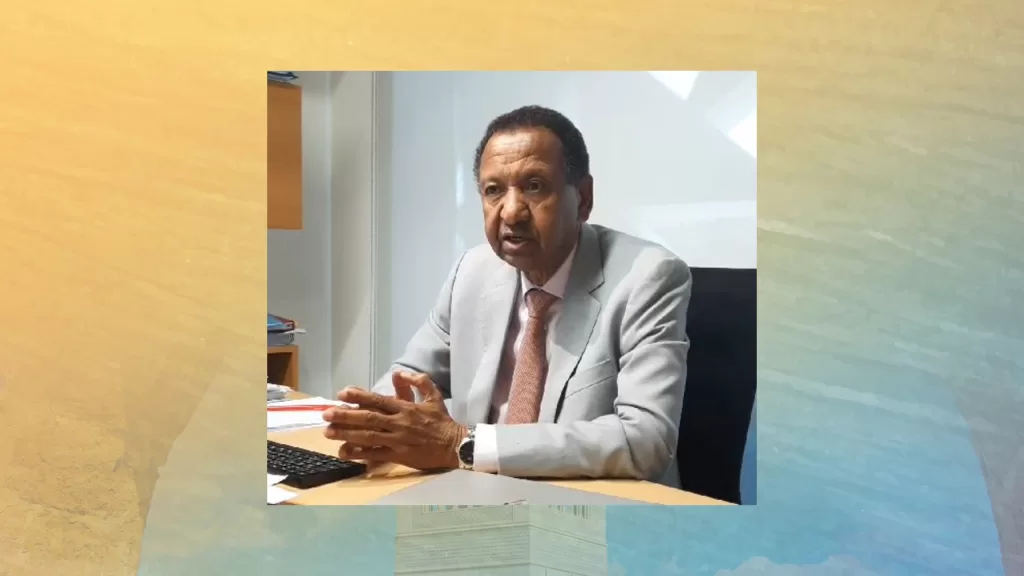
Likewise, in his recorded remark, Dr. Khaled El-Enany, former Minister of Tourism and Antiquities of Egypt and candidate for the UNESCO Director-General position, also praised ICESCO’s efforts and achievements that have impacted its Member States in several fields, stressing that this session of the Executive Council is an opportunity to develop mechanisms for joint action.
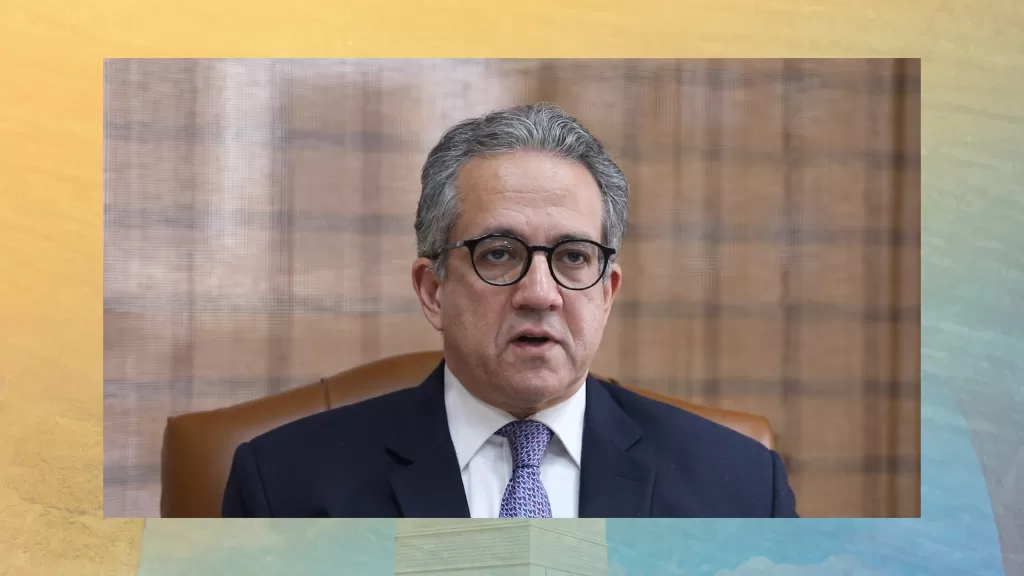
The opening session featured a video highlighting the international certificates of excellence recently awarded to ICESCO in management, governance, and innovation. This was followed by the signing of cooperation agreements between ICESCO, the Arab Society for Economic Research (ASFER), and the National Center for Technologies in Education (CNTE) in Tunisia, aimed at strengthening collaboration in innovative financing, artificial intelligence, and its applications in education.
The Executive Council sessions then commenced with a review of the Organization’s performance reports over the past year and its future plans. The session also approved the applications of the Federative Republic of Brazil and the International Institute for the Unification of Private Law (UNIDROIT) to join ICESCO as Observer Members.
